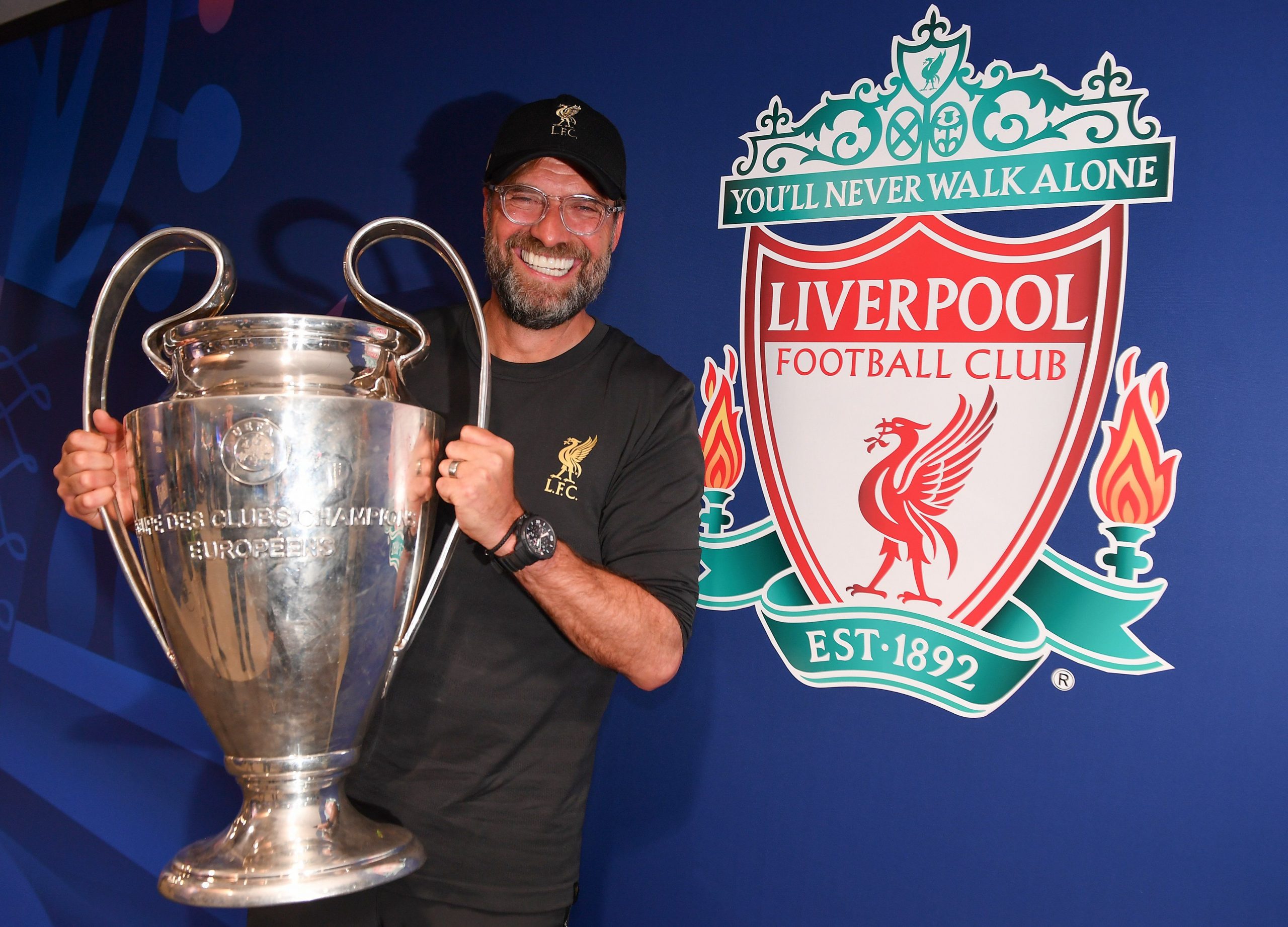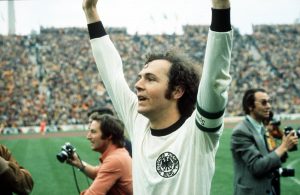Despite
being part of the richest, most-viewed and arguably the best domestic football
competition in the world, clubs from the Premier League have a habit of
regularly falling short in Europe’s premier club competition, the UEFA Champions
League.
Be it
getting trounced by one of the continent’s traditional powerhouses like
Barcelona, Real Madrid, Juventus or Bayern Munich, or suffering embarrassing exits to supposedly
lesser teams from the so called ‘farmer’s leagues’, English clubs have time and
again shown a knack for bottling their chances on the biggest stage.
Also Read: ‘No Ballon d’Or, no problem’, Robert Lewandowski named UEFA men’s player of the year
Foreign
managers at Premier League clubs, like Jose Mourinho, Pep Guardiola and Jurgen
Klopp, have long decried the country’s demanding calendar, calling it out as one of the primary
reasons behind their early exits from Europe.
Playing two
cup competitions – the FA Cup and the Carabao Cup – besides having to cope with the English tradition of a relentless
Christmas-New Year schedule in the most physically demanding league in the world
has been cited as being far too strenuous to mount a proper challenge against
their European rivals, who enjoy a two-week winter break in that period.
Attempts
have been made to address those issues, with the Premier League introducing a staggered
winter break in the month of February for the first time ever during the 19-20
season. Those privileges will be unavailable this year because of a rescheduling
of the calendar in light of the coronavirus pandemic.
However, the riches of the Premier League, by way of the reported £4.5 billion broadcast deal agreed with Sky and BT for three years from 2019 to 2022, gives English clubs a huge advantage over their European rivals.
This year,
despite global finances being toppled due to the pandemic, Premier League clubs
have splurged over £1.4 billion in the summer transfer window.
Also Read: Denmark’s Pernille Harder adjudged UEFA women’s player of the year
Having spent a majority of that war-chest and representing
England’s interests in Europe this season are first-time Premier League champions
Liverpool, along with Chelsea and the two Manchester clubs, City and United. Here
is a breakdown of their prospects in this season’s edition of the Champions
League:
Liverpool
Jurgen
Klopp’s runaway Premier League Champions were perhaps the best team in Europe – having won an unprecedented 27 of 29 Premier League matches and establishing a 25-point lead over second-placed Manchester City – until they allowed Atletico Madrid to complete a stunning comeback from 2-0 down at Anfield to knock them out of the Round-of-16 stage in the Champions League in March.
The prolonged pandemic-enforced break put a halt to all sporting action
soon after and with the restart of football in June came a different, a
much more vulnerable Liverpool.
They lost
to City and Arsenal in the league and have endured a shaky start to their Premier League title defence, recording a spectacular 7-2 loss against Aston Villa prior to the International break before being held to a stalemate at Goodison Park in the season’s first Merseyside derby.
To make matters worse, an ACL injury to defender Virgil van Dijk will reportedly see him miss out on 7-8 months of action.
However, having made
key signings over the summer, in Wolves winger Diogo Jota and Bayern Munich’s
Spanish midfielder Thiago Alcantara, the Reds will be looking to get level with
AC Milan at seven Champions League titles this season.
Together with the ‘Fab Three’ trio of Sadio Mane, Mohammed Salah and Roberto Firmino, Liverpool remain one of the top contenders for the title again this season and should comfortably seal top spot in Group D, having been drawn against Ajax, Atalanta and Midtjylland.
Chelsea
Chelsea
were dumped out of the Round-of-16 in last season’s competition after a meek showing
in a 7-1 aggregate loss to eventual champions Bayern Munich.
But they crucially
managed to finish in a top four spot in the Premier League last season and they have since gone on to have a blockbuster summer transfer window.
Billionaire
Russian owner Roman Abramovic has backed manager Franck Lampard with a huge, nearly £250 million, summer
outlay, which has helped them add to their ranks the attacking talents of Timo
Werner, Kai Havertz and Hakim Ziyech, along with left-back Ben Chilwell and a much-needed goalkeeping
back-up in Edouard Mendy.
They have also
signed veteran defender Thiago Silva and Malang Sarr on free transfers as
Lampard embarks upon a 20-21 season with a heavy burden of expectation on his
shoulders.
It has been
a topsy-turvy season so far for the Blues, recording draws against West Bromwich
Albion and Southampton after losing 2-0 to Liverpool last month.
Lampard will take heart from the connection his German duo – Havertz and Werner – showed
during the UEFA Nations League clash against Switzerland, with both getting on the
scoresheet, and the latter also breaking his Premier League duck with a brace against
Southampton.
They have
been drawn in Group E of the Champions League with Krasnodar, Renne and Europa
League champions Seville and should be aiming to finish at the top of the
standings.
A favourable draw in the Round-of-16 could see them make the quarter-finals but anything beyond that is highly unlikely for a young team with an inexperienced manager.
Manchester City
Pep Guardiola’s
ambitions for a first Champions League since his Barcelona days seem to be
cursed.
Having been knocked out in three consecutive semi-finals with Bayern Munich, he is yet to reach that stage with Manchester City, recording disappointing and often embarrassing defeats in the prior
rounds.
In his four
seasons with City, he has been knocked out by Monaco – in Kylian Mbappe’s
breakthrough season in 2017 – Liverpool, Tottenham Hotspur and most recently, by Lyon, courtesy a 1-3 reverse in the quarter-finals last season.
Guardiola
has long strived to replace club icon Vincent Kompany, and his search for ball-playing centre-backs, that fit his possession-based system, has led to a number of
underwhelming arrivals such as Nicholas Otamendi and John Stones.
This
season, apart from promising Valencia winger Ferran Torres, they have added Bournemouth’s
Nathan Ake and Benfica’s Ruben Dias to strengthen their defensive ranks.
That took
the Spaniard’s spending on defenders alone at City over the £400 million-mark, more than
what the Fenway Sports Group, then known as New England Sports Ventures, paid to
acquire Liverpool in 2010.
With those additions and with Belgian playmaker Kevin de Bruyne in the form of his life, Guardiola will be
looking to end his voodoo this season and draw level with Bob Paisley, Carlo Ancelotti
and Zinedine Zidane as the only managers with three Champions League titles.
City have been drawn in a relatively easy Group C, against Marseille, Olympiacos and Porto and should comfortably finish top of the group.
Manchester United
Manchester
United’s third-place finish last season seemed a little flattering for a team yet
to find its identity and marred by inconsistency.
Under Ole Gunnar Solskjaer,
United have been a lethal counter-attacking side against the bigger teams that like
to dominate possession, while failing to breakdown ‘lesser’ teams that defend
deep in their half.
An underwhelming summer transfer window saw them missing out on long-term target Jadon Sancho, while also
failing to add another centre-back to add solidity to a shaky back-line with
world-record arrival Harry Maguire clearly needing help.
However,
they did acquire cold-blooded finisher Edinson Cavani on a free transfer from
Paris Saint Germain along with Dutch playmaker Donny van de Beek from Ajax.
They have
been placed in a tricky Group H, along with last year’s runners up Paris Saint Germain,
semi-finalists RB Leipzig and Istanbul Basaksehir, although the firepower in
their ranks should see them finish in one of the top two places and advance to
the knockout rounds.
Anything beyond the Round-of-16 will be a big boost, not to mention a bit of a surprise, for the Red Devils.






